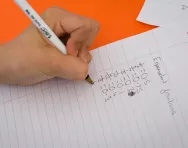Important update from TheSchoolRun
For the past 13 years, TheSchoolRun has been run by a small team of mums working from home, dedicated to providing quality educational resources to primary school parents. Unfortunately, rising supplier costs and falling revenue have made it impossible for us to continue operating, and we’ve had to make the difficult decision to close. The good news: We’ve arranged for another educational provider to take over many of our resources. These will be hosted on a new portal, where the content will be updated and expanded to support your child’s learning.
What this means for subscribers:
- Your subscription is still active, and for now, you can keep using the website as normal — just log in with your usual details to access all our articles and resources*.
- In a few months, all resources will move to the new portal. You’ll continue to have access there until your subscription ends. We’ll send you full details nearer the time.
- As a thank you for your support, we’ll also be sending you 16 primary school eBooks (worth £108.84) to download and keep.
A few changes to be aware of:
- The Learning Journey weekly email has ended, but your child’s plan will still be updated on your dashboard each Monday. Just log in to see the recommended worksheets.
- The 11+ weekly emails have now ended. We sent you all the remaining emails in the series at the end of March — please check your inbox (and spam folder) if you haven’t seen them. You can also follow the full programme here: 11+ Learning Journey.
If you have any questions, please contact us at [email protected]. Thank you for being part of our journey it’s been a privilege to support your family’s learning.
*If you need to reset your password, it will still work as usual. Please check your spam folder if the reset email doesn’t appear in your inbox.
Last year's SATs uproar & what to expect in 2024

Ah, SATs season! It's that time of the year when pencils are sharpened, brains are buzzing, and there might be a few butterflies fluttering in the stomachs of Year 6 teachers and parents nationwide. But fear not! I'm here to debunk some myths from last year's Key Stage 2 SATs in England and equip you with tips to help your child approach them calmly and confidently this year.
Were the 2023 SATs too hard?
Last year's reading test caused a stir, with some parents and teachers feeling it was trickier than usual. An article by Schools Week looked at each of the issues raised and found that the 2023 reading test was indeed harder than recent years, falling somewhere between the easier post-2016 tests and the slightly tougher 2023 version.
However, it wasn't quite as challenging as the infamous "unduly hard" 2016 test. Thankfully, the test results met their purpose, according to exam regulator Ofqual. This means they effectively assessed what children learned in line with the curriculum. As with previous years, the number of marks needed to reach the expected level was also adjusted, taking into account the increased complexity of the paper.
Why did some children not finish the 2023 SATs?
Another worry was that many kids didn't finish the test. About three in ten children didn't complete the last reading question in 2023. But don't panic! This isn't unusual, and it doesn't affect the validity of the results. Only the most fluent readers might finish the entire paper.
Apart from the reading test, there were a few minor hiccups:
- Marking delay: a technical glitch caused a slight delay in marking, but it didn't impact the final results.
- Gateway glitch: some schools faced a brief delay in accessing results online, but it got sorted out quickly.
- Missing scripts: a few scripts went missing, but most kids still got their results based on other papers.
Thankfully, these issues are being addressed, and there's been significant progress in delivering the 2024 assessments compared to previous years.
How can you prepare for 2024 SATs?
If your child is in Year 6, here are some tips to help them approach the SATs confidently:
- Focus on the journey: SATs are just one measure of progress. Celebrate your child's hard work throughout the year, not just their test scores.
- Stick to the routine: maintain your child's sleep and study habits leading up to the tests.
- Practice makes progress: many schools offer past paper resources (you can find all of the past papers for free on TheSchoolRun). Encourage your child to use them, but don't overdo it – they shouldn't feel burnt out.
- Talk it out: have a chat with your child about any worries they might have. Let them know you're there to support them, regardless of the outcome.
- Reach out to teachers: your child's teacher will be glad to help with revision ideas or activities you can do at home to prepare.
Remember: SATs are just a snapshot in time. They don't define your child's potential. Focus on nurturing their love for learning and celebrate their unique journey. Before you know it, the SATs will be over, and your child can focus on the rest of their school adventure!
Matt Revill is a primary school headteacher with over 20 years experience of working in schools. He has worked in a range of settings and currently works within a multi-academy trust of 14 schools. In his free time, he enjoys reading, computing, holidaying and spending time with his family and friends. Matt has a son who is currently working his way through A-levels at college.







